|
|
| |
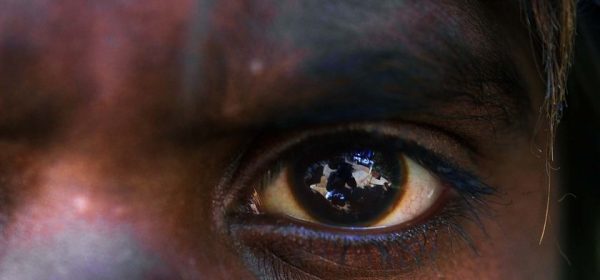
In Yolŋu Matha, Bularryun means ‘to reveal itself’.
Hope and knowledge for Yolŋu people is like a shadow deep in the water, and only when it surfaces (bularryun) and is revealed, can we truly move forward.
Yo! Here at Why Warriors we are busy applying for a new culture and capability project called The Bularryun Hope & Knowledge Project (BHKP), driven by Yolŋu people of north-east Arnhem Land to improve cross-cultural communication outcomes.
BHKP would develop and enhance the success of our previous Business Radio Programs that were funded by NIAA, and recently commended by a PriceWaterHouseCoopers (PWC) evaluation in late 2020. Building on our prior work, BHKP will ensure additional Yolŋu staff deliver expanded content to a wider, more diverse demographic, providing access to information that strengthens Indigenous communities. The research for BHKP is driven by an experienced team of Yolŋu through extensive, in-language consultation with local stakeholders across the remote communities. This research centres around identifying the barriers Yolŋu experience in understanding mainstream culture in employment, education, law and order, governance, healthcare and community safety issues. Plus a wide range of "need to know" everyday general knowledge queries.
The goal is for our team to continue to create educational resources that give people access to these seemingly extremely confusing, life-blocking subjects, in their own language and worldview. To bularryun, bring to the surface, what these things really mean.
To help us make this proposal successful, please interact with our content and ask for more!
Are you a Yolŋu Matha speaker, or work with Yolŋu people?- Visit our Yolŋu Matha learning platform and search for what you need answers to.
- Search current terms like covid or maybe look up a hard English concept word or listen to podcasts around law or our vital health videos on rheumatic heart disease/ what is a heart attack?.
- What would be helpful to you? What do your students or workers need? How can we provide opportunities for more engagement with these vital resources?
Not a Yolŋu Matha speaker but generally interested in Indigenous or Yolŋu issues? We encourage you to visit our general website and check out the free learning community development resources or the weekly Q&As.
Follow us to have more informed conversationsOn social media, our YouTube channel (and now LinkedIn!) to stay up-to-date.
|
| |
|
| |
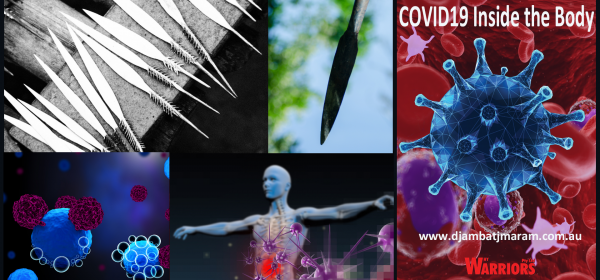
COVID-19 vaccine
The COVID-19 vaccine rollout in Australia started in February, with Aboriginal and Torres Strait Islander adults identified as a priority group for vaccination. This is because there is a higher risk of getting and developing serious illness from COVID-19 due to a number of factors, i.e. higher rates of chronic health conditions and in some cases crowded-living conditions, which increases the risk of spreading the infection.
Our cross cultural podcast series looks at body cells, viruses and how diseases are caused and treated. These are aimed at Yolŋu Matha speakers and people working with Yolŋu communities. Please share these resources with your networks. We hope it helps demystify information around COVID-19 and uncertainty about the vaccine.
Produced in partnership with our Yolŋu researchers and microbiologist, Dr Kerry Mills, we explain things from a Yolŋu worldview, for example:
"Think of body cells like turtle eggs, where the body cells have an outer skin and another thin membrane layer that covers the inside part. This part is like the yolk in a turtle egg and is called a ‘nucleus’ in a body cell. The nucleus is like the brain for the cell. When the virus enters a body cell it goes into the nucleus, and uses the nucleus to instruct the cell to make more viruses..."
"When you cough, sneeze, or speak, droplets come out of your body in all different sizes. The big ones are heavier so they drop to the ground, but the little droplets float in the air. They are the most dangerous because they cannot be seen. We compare this to being able to smell salt water a long way from the beach. The difference is, is that salt water can be smelt, but you cannot smell little droplets with viruses in them."
"The antibody is like a kind of spear with specific spear heads, in the same way that different spears are used for hunting wallaby, turtles, fish and dugong."
Read more...
|
| |
|
| |
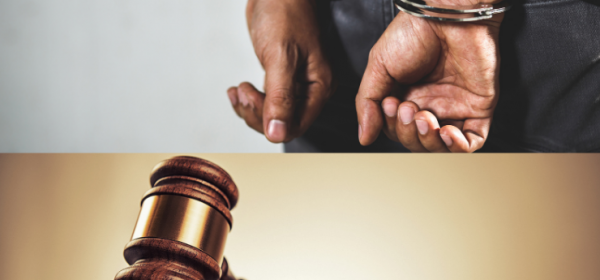
Broken parole or broken communication?
Indigenous Australians are over three times more likely to die from a 'potentially avoidable cause', are incarcerated at more than ten times the rate of the general Australian population, and only one third of Indigenous children attend school each day. While the reasons for these crises are complex, in many cases the underlying causes are failures in communication and translation of concepts that most English speakers take for granted.
A Yolŋu mother, whose son was being offered parole, called our office recently as she had no understanding of what ‘parole’ meant. Our Yolŋu co-producer, Dianne Gondarra, checked and found that nobody within her community understood what parole meant either. This lack of understanding of important English concepts leads to an increased risk that Indigenous Australians may break conditions related to parole — not out of lack of respect for the law, but rather out of a lack of understanding that such conditions actually exist. The problem can lead to a negative feedback loop in which Yolŋu can feel disempowered, leading to increased risk of further conflict, resulting in further feelings of disempowerment.
We have created multiple resources covering the meaning of 'parole' as well as related terms like 'parole board’, ‘parole officer’, ‘probation’ in English and Yolŋu Matha, to target these issues at the roots.
Read more...
|
| |
|
| |
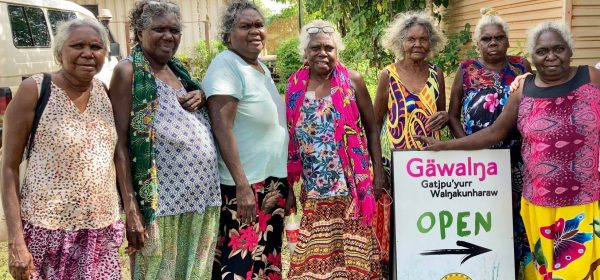
Seeking support: Hope for Health
The Hope for Health program has an opportunity in 2021-2023 to be scaled up. Their research partner; The Doherty Institute at The University of Melbourne, have secured a research grant that aims to validate Hope For Health program’s effectiveness in improving the metabolic health of Yolŋu people managing chronic disease or at risk of developing chronic disease. The project is set to take place over the next 2 years, involving 120 Yolŋu people participating in retreats, health coaching and health education. Delivered at large scale involving 10% of the adult population of Galiwin'ku (and reaching nearly 30% of households in Galiwin'ku), the program will further impact on families and transform the whole community’s knowledge and approach to health.
However, they have an urgent dilemma.
Whilst they have the on-going commitment of some long-term philanthropic partners, their small charity is facing a funding crisis and they need to secure a commitment of $250,000 per year for the next 2 years to fund the delivery of the program and complete the research.
Without committed funds, the research will not take place and the opportunity will be lost to validate the program and provide the evidence required to attract Government funding to replicate the model in other remote Aboriginal communities in the future.
In the coming months, they will be running a public fundraising campaign to increase our general supporter base. Regular contributions from donors will help them to provide certainty to their partners and supporters as well as their ability to adapt going forward.
If you are interested in supporting the program once again or your business or organisation would like to make a commitment to sponsor the Hope For Health program, they would be very grateful for your help.
You can donate here
|
| |
|
| |
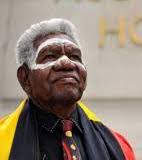
|
|
Rev Dr. Djiniyini Gondarra OAM is the most senior Why Warriors team member and a senior political leader of his own Gulamala clan. His knowledge stems from when his grandparents traded with the Macassans, through to modern-day business practices. In 1990s, Djiniyini and Richard Trudgen developed 'Discovery Education', an educational methodology where Yolŋu people could get answers to the questions they wanted, rather than being told what non-indigenous educators believed they needed to know. This methodology is still used by Why Warriors.
|
| |
|















